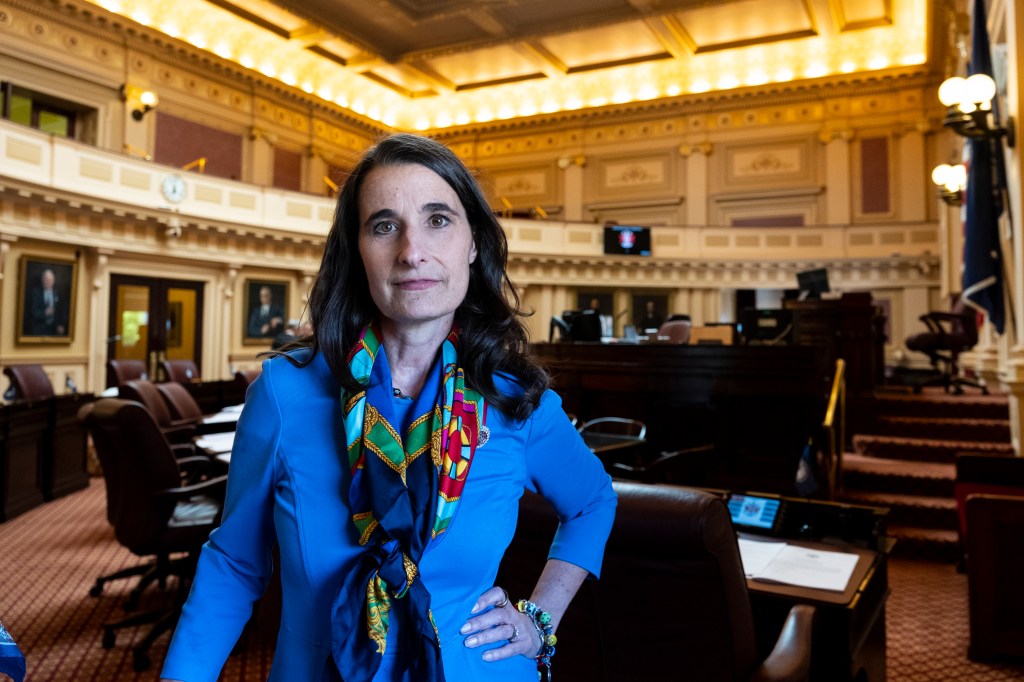[ad_1]
A legislative task force has convened to study transparency deficiencies at publicly funded facilities that conduct animal experiments.
“I felt like it started a conversation,” Sen. Jennifer Boysko, D-Fairfax, said Thursday. “Typically during the legislative session, everything is so compressed and quick. This actually brought the people who have a real stake in (this issue) to the table, and I think we will come out with a reasonable and thoughtful result.”
Boysko is among several legislators who carried bipartisan legislation this year that would have made it easier to obtain information about animal testing at state-funded facilities. Several public universities in Virginia experiment on animals as part of their scientific research, including Eastern Virginia Medical School in Norfolk.
After universities pushed back, arguing it would overburden their institutions, the legislation was amended to form a task force to study the issue. The group includes representatives for universities, animal rights groups and open government advocacy organizations. Four legislators serve on the panel: Boysko, Sen. Bill Stanley and Dels. Shelly Simonds and Hillary Pugh Kent.
Solutions were not explored during the first meeting July 26 in Richmond, but members identified their goals and concerns with the help of professional mediators.
“I would like the access to understand exactly which animals are there,” Boysko said at the meeting. “How many die and what the circumstances are of their death — for transparency’s sake, I think it’s reasonable to request that.”
Simonds, a Newport News Democrat, said she wanted to ensure information about the number and type of animals being used in experiments was easily accessible to the public without red tape.
“I think that barriers to information when it’s a publicly funded university are inappropriate, and I want to make sure that we have the information without having to do constant FOIA requests,” she said.
Raphael Malbrue, an attending veterinarian and director for the Center for Comparative Medicine at the University of Virginia, questioned how knowing the numbers would help improve animal welfare. He added that researchers were often busy working on publications.
“They are doing so much paperwork, to be perfectly honest that prevents them from doing some of those outreach things to really talk to taxpayers about this is where your money is going and this is the new discoveries we have made,” he said.
Josh Cohen, research assistant professor at Virginia Commonwealth University, said schools provide oversight for animal research and aren’t trying to hide their work. But he said researchers are wary about releasing information regarding experiments.
“If you haven’t filed an invention disclosure, then you lose your right to that intellectual property,” he said. “I think that is part of the reason why universities and institutions of higher education are cautious about what is put forward.”
Megan Rhyne, executive director for the Virginia Coalition for Open Government, argued public entities don’t get to determine their own transparency policies or decide what would be of value to the public.
“The public gets to decide what they are interested in,” she said. “They get to say I would like to see this information — and the data, the information, is their right to obtain unless a (FOIA) exemption applies.”
The task force will convene again Aug. 30 and Sept. 20. Meetings are open to the public and can be viewed on the website for the Virginia Department of Agriculture and Consumer Services.
The group will issue a report of its findings later this year for the legislature to review.
Legislators have zeroed in on animal testing in recent years after the U.S. Department of Agriculture issued a string of warnings and animal welfare citations to several universities, including EVMS and Virginia Tech. Doug Gardner, a spokesperson for EVMS, declined to comment on the task force this week, explaining the school wants to wait until the group has concluded its work.
The university further declined a request by The Virginian-Pilot to tour the institution’s animal-holding facilities.
“To ensure the safety and well-being of the animals in our facility, we do not permit individuals not involved in the care, facilities maintenance, accreditation, inspection, training, and university administration and regulation,” Gardner wrote in an email.
Katie King, [email protected]
Originally Published:
[ad_2]
